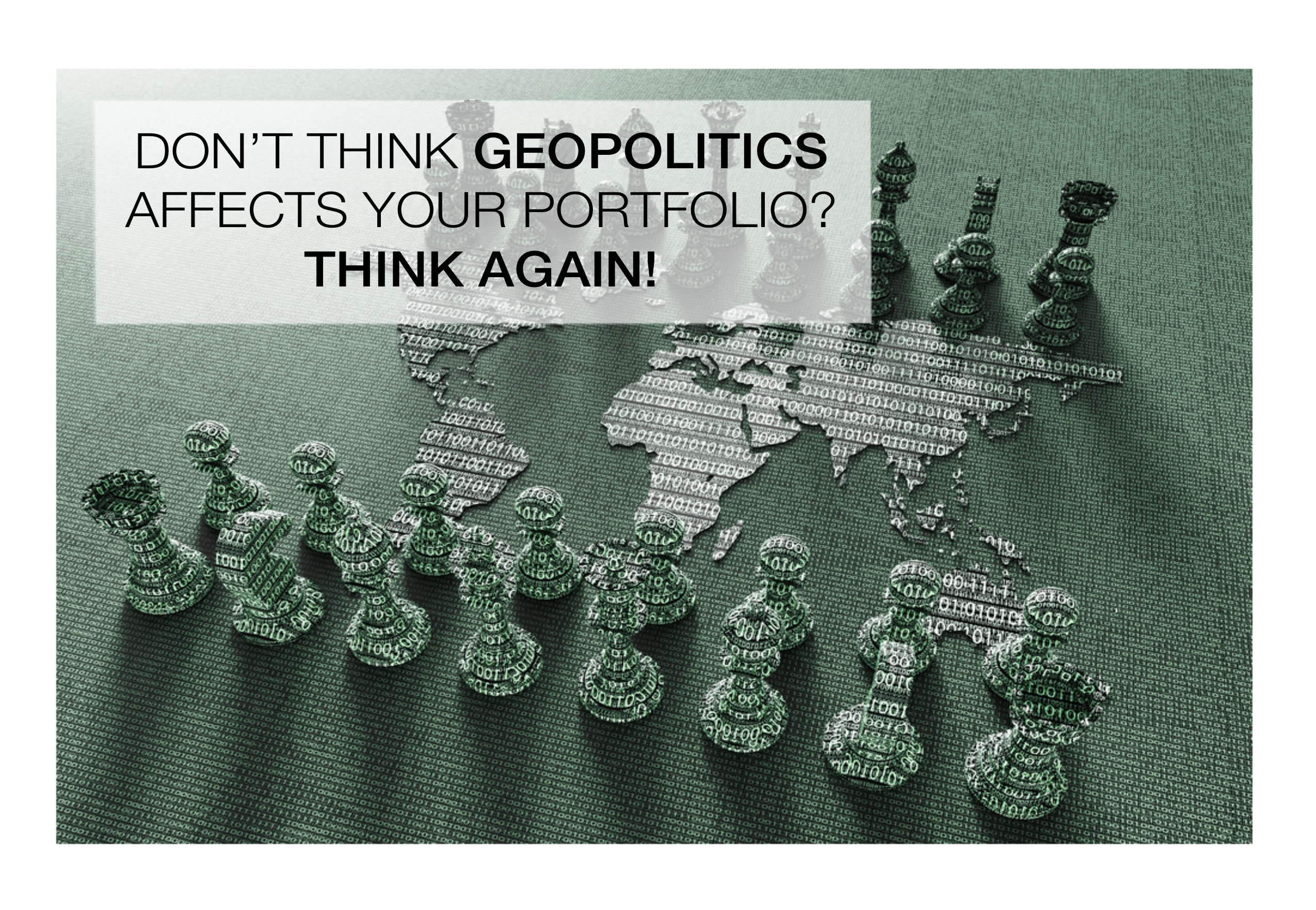This month the Russian army invaded Ukraine and markets already nervous from inflation fears got another shock. Equities had dropped 12% since the start of the year, whilst commodities and oil prices spiked – and continue to rise. I have seen financial advisers on the offensive, calling investors to discuss the situation and reduce the fear that their portfolios are on the verge of collapse.
If you’re an investor, recent global events might make you nervous and consider selling some or all of your holdings until the conflict is resolved.
Think geopolitics doesn’t affect you? You’re seeing, in real time, that they absolutely do.
Whilst some markets have settled, with commodities surging and bonds and the dollar rallying, the lesson remains: the global stage directly impacts your investment performance. Examples of geopolitics go far beyond troops invading a neighboring country. Conflict, trade policies, even how one nation’s financial market performs can impact investments around the world.
Look at it from beyond our borders, then consider the axiom, “When America sneezes, the world catches a cold” to understand the implications. The Financial Crisis of 2008 is a perfect example. When subprime mortgages precipitated a U.S. crash, the world fell into an historic slump. The global recession saw international trade and commodities plummet and unemployment spike. It took almost three years before a global recovery began, with many nations lagging behind the U.S.
I’ve spent my career working in global financial markets, from Europe, the Middle East and Russia to the US. In an increasingly flat global marketplace, any nation with a significant economy can be a super-spreader, and geopolitics will directly affect investment portfolios.
How should you respond? To quote Douglas Adams from “The Hitchhiker’s Guide to the Galaxy,” Don’t panic. Seasoned investors, especially those committed to the long play, have learned to live (and even thrive) through crises. Be cautious, but not frightened by them. Events on the global stage have a way of settling down; situations, for better or worse, eventually work themselves out.
As the current crisis continues to unfold in eastern Europe, whilst our hearts bleed for many innocent civilian Ukrainians caught in the middle, one way or another, this will resolve itself. Conditions will calm. Markets will reset. Long-term investors will see stability return and their portfolios recover.
The lesson for investors: Stay the course, especially if you’re a long-term investor. Talk to your advisor to see if any unique opportunities exist to rebalance your portfolio, especially if you’re sitting on a lot of cash. This may be the time to take a portion of that money off the sidelines and make some strategic investments.
What history has taught us is that when the dust settles, markets focus on fundamentals, which have not changed. Well-managed companies and investment portfolios that were dinged will in the long-term return to profitability.

Leave A Comment